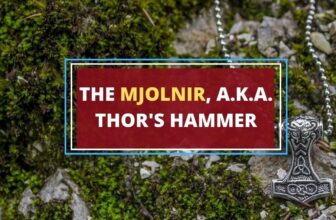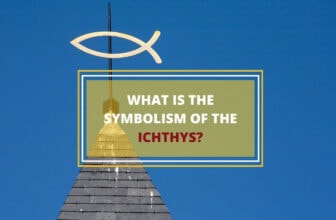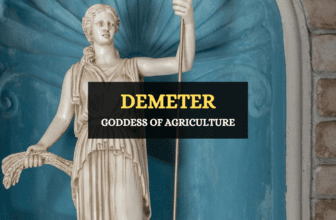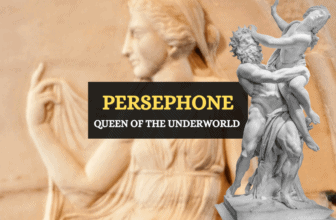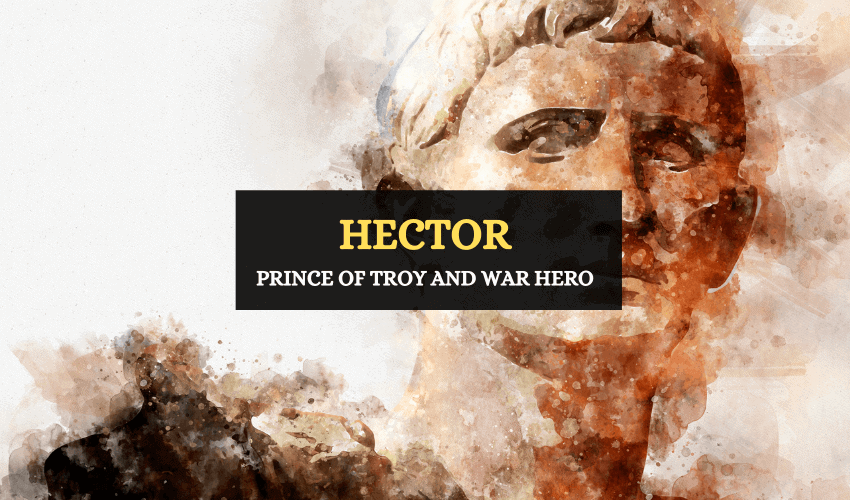
Table of Contents
In Greek mythology, Hector was the prince of Troy and one of the most remarkable heroes of the Trojan war. He led the Trojan troops against the Greeks, and killed 30,000 of the Achaean soldiers himself. Many writers and poets regard Hector as the greatest and bravest warrior of Troy. This Trojan hero was admired by both his own people and even by their enemies, the Greeks.
Let’s take a closer look at Hector and his many remarkable feats.
Hector’s Origins
Hector was the first son of King Priam and Queen Hecuba, the rulers of Troy. As a first-born, he was the heir to the throne of Troy and commanded the Trojan troops. Amongst the Trojan warriors were his very own brothers Deiphobus, Helenus and Paris. Hector married Andromache and had one son by her – Scamandrius or Astyanax.
Hector was also believed to be Apollo’s son, as he was greatly admired and favored by the god. Hector was described by writers and poets as a courageous, intelligent, peaceful, and kind figure. Even though he did not approve of war, Hector still remained faithful, true and loyal to his army and the people of Troy.
Hector and Protesilaus
Hector displayed immense strength and bravery from the very beginning of the Trojan war. A prophecy foretold that any Greek who landed on the Trojan soil would be instantaneously slain. Not heeding the prophecy, the Greek Protesilaus attempted to set foot in Troy, and was stalled and killed by Hector. This was a great victory because Hector stopped one of the strongest warriors from entering and leading a battle against Troy.
Hector and Ajax
During the Trojan war, Hector directly challenged the Greek warriors to a one-on-one combat. The Greek soldiers drew lots and Ajax was chosen as Hector’s opponent. It was one of the most challenging fights and Hector was unable to pierce through Ajax’ shield. However, Ajax’ sent a spear through Hector’s armor, and the Trojan prince only survived after the intervention of Apollo. As a mark of respect, Hector gave away his sword and Ajax gifted his girdle.
Hector and Achilles
The most significant and life changing event for Hector was the battle with Achilles. During the tenth year of the Trojan war, the soldiers of Troy were confronted by the Greeks, and they responded with a full-blown attack.
Hector’s wife, Andromache, predicted his death and asked him not to join the battle. Though Hector realized his doom, he comforted Andromache and explained the importance of loyalty and duty to the Trojans. Hector then went into his very last battle against the Greeks.
In the midst of all the fighting and bloodshed, Hector killed Patroclus, a very close friend and companion of Achilles. Grieved by the loss of Patroclus, Achilles returned to the Trojan war with a new-found rage and energy. With the help of Athena, Achilles slew Hector by piercing and wounding his neck.
Hector’s Funeral
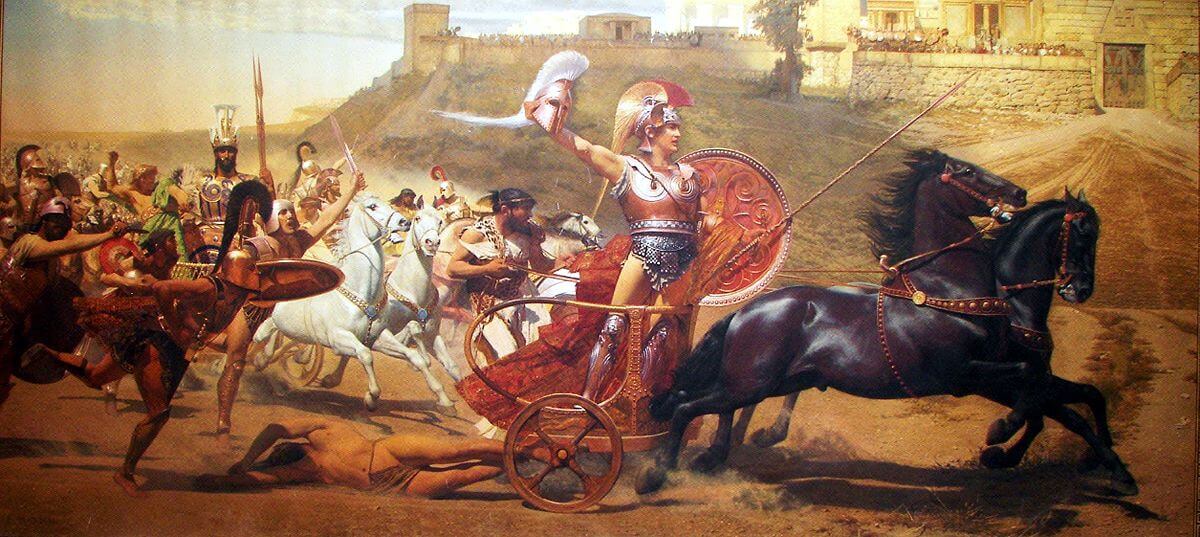
Hector was refused an honorable and respectable funeral and for several days his body was dragged around the city of Troy by the Greeks. Achilles wanted to humiliate his enemy, even in death. King Priam approached Achilles with many gifts and a ransom to get back his sons’ body. Finally, Achilles felt touched and sorry for the king and permitted a proper funeral for Hector. Even Helen of Troy mourned the loss of Hector, as he was a kind man who treated everyone with respect.
Cultural Representations of Hector
Hector appears in many works of classical literature. In Dante’s Inferno, Hector’s projected as one of the noblest and virtuous of pagans. In William Shakespeare’s Troilus and Cressida, Hector is contrasted with the Greeks and portrayed as a loyal and honest warrior.
The battle between Hector and Achilles was a popular motif in ancient Greek pottery and vase painting. Hector also was featured in several artworks such as Jacques-Louis’ Andromache Mourning Hector, an oil painting that depicted Andromache mourning over Hector’s body. A more recent painting, Achilles Dragging the Body of Hector painted by Francesco Monti in 2016, portrayed Achilles humiliating the Trojans by dragging the body of their leader.
Hector appears in films from the 1950’s onwards, in movies such as Helen of Troy (1956), and Troy (2004), with Brad Pitt starring as Achilles and Eric Bana as Hector.
Below is a list of the editor’s top picks featuring Hector’s statue.
Facts About Hector
Hector was a prince of Troy and a great warrior of the Trojan army.
Hector’s parents are Priam and Hecuba, rulers of Troy.
Hector’s wife is Andromache.
Hector had killed Patroclus in battle, a close friend of Achilles. He was also the strongest warrior on the Trojan side and killing him changed the tide of the war.
Hector symbolizes honor, bravery, courage and nobility. He stood for his people and even for his brother, despite the war being brought upon Troy by his brother’s thoughtless actions.
In Brief
Despite his bravery and valor, Hector couldn’t escape his fate which was intricately bound with the defeat of the Trojans. Hector was an important figure in Greek mythology and stood as an example of how a hero mustn’t only be strong and courageous, but kind, noble, and empathetic.







